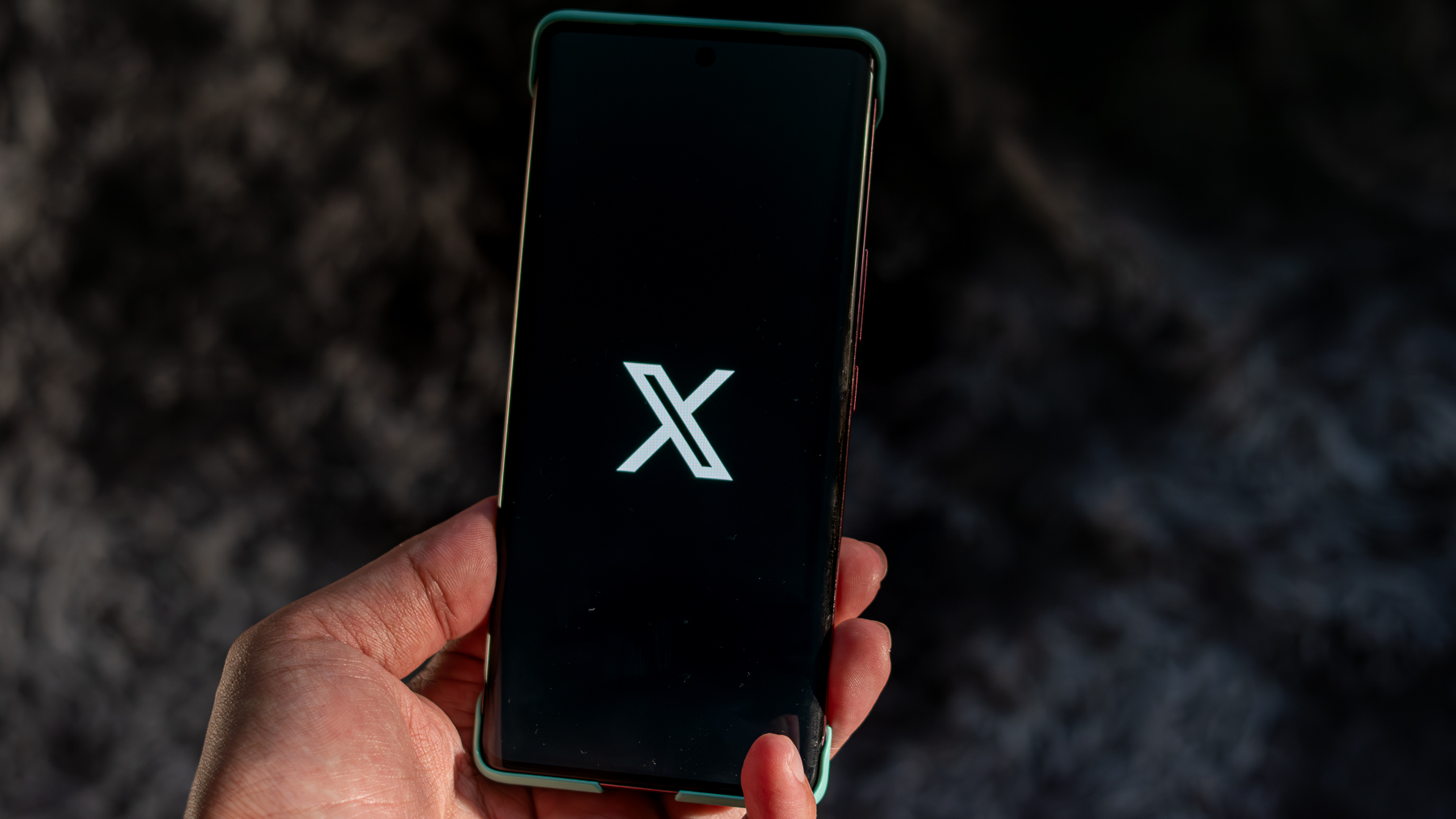Motorola Razr 2023 vs. Razr Plus: Should you wait?
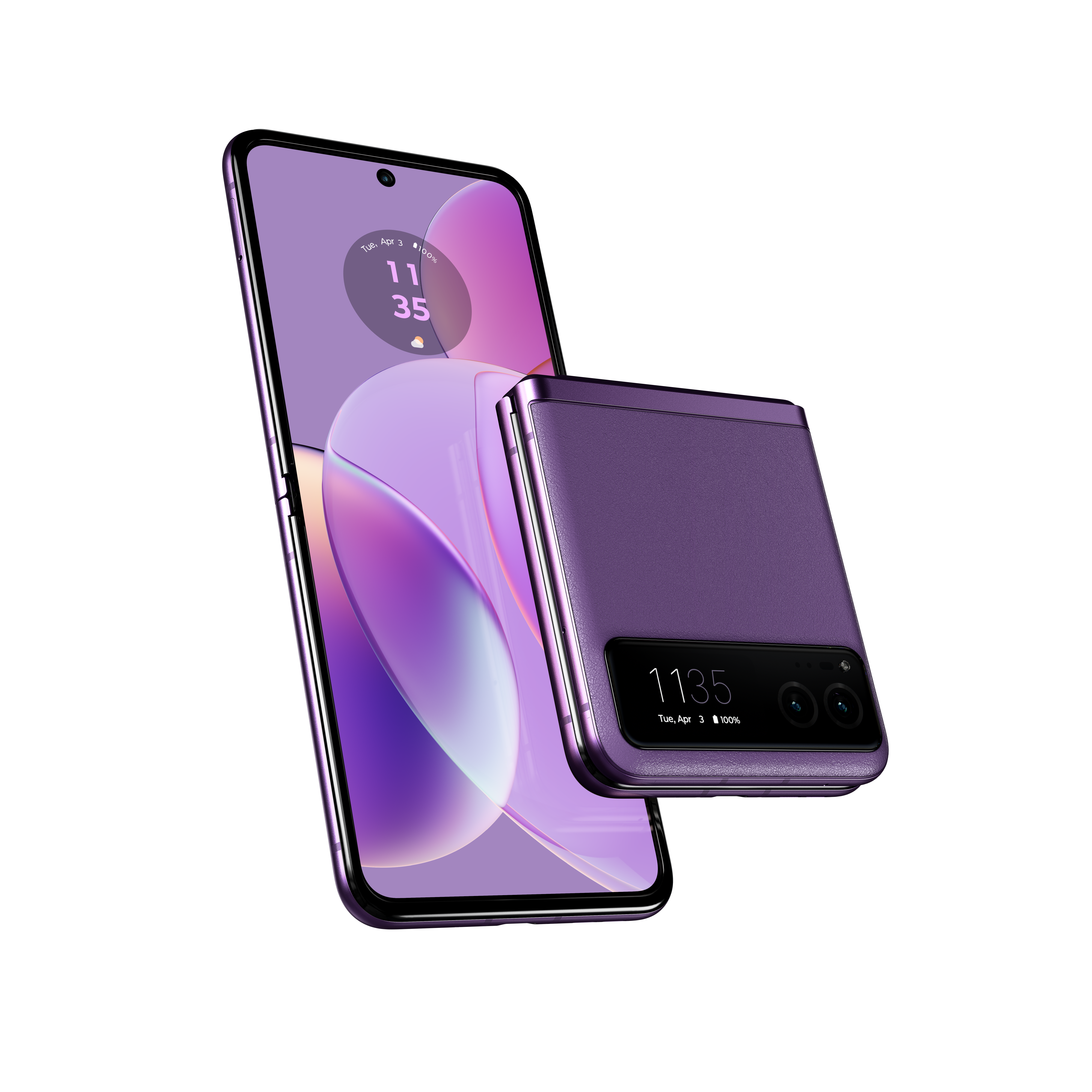
The affordable foldable
The Motorola Razr may be the "affordable" model, but it's far from a cheap phone. It has a fast 144Hz OLED display, fast Snapdragon 7-series chip, and a vegan leather finish that feels fantastic in your hand. Plus, you get much of the same hardware as the flagship Razr+, only cheaper.
Pros
- Vegan leather on all colors
- Snapdragon 7 Gen 1 chipset
- Impressive 144Hz display
- Larger battery
- 3 OS upgrades, 4 years of updates
- Cheaper
Cons
- Smaller cover screen
- 128GB base model for NA
- Slower RAM and storage
- Not yet available in NA
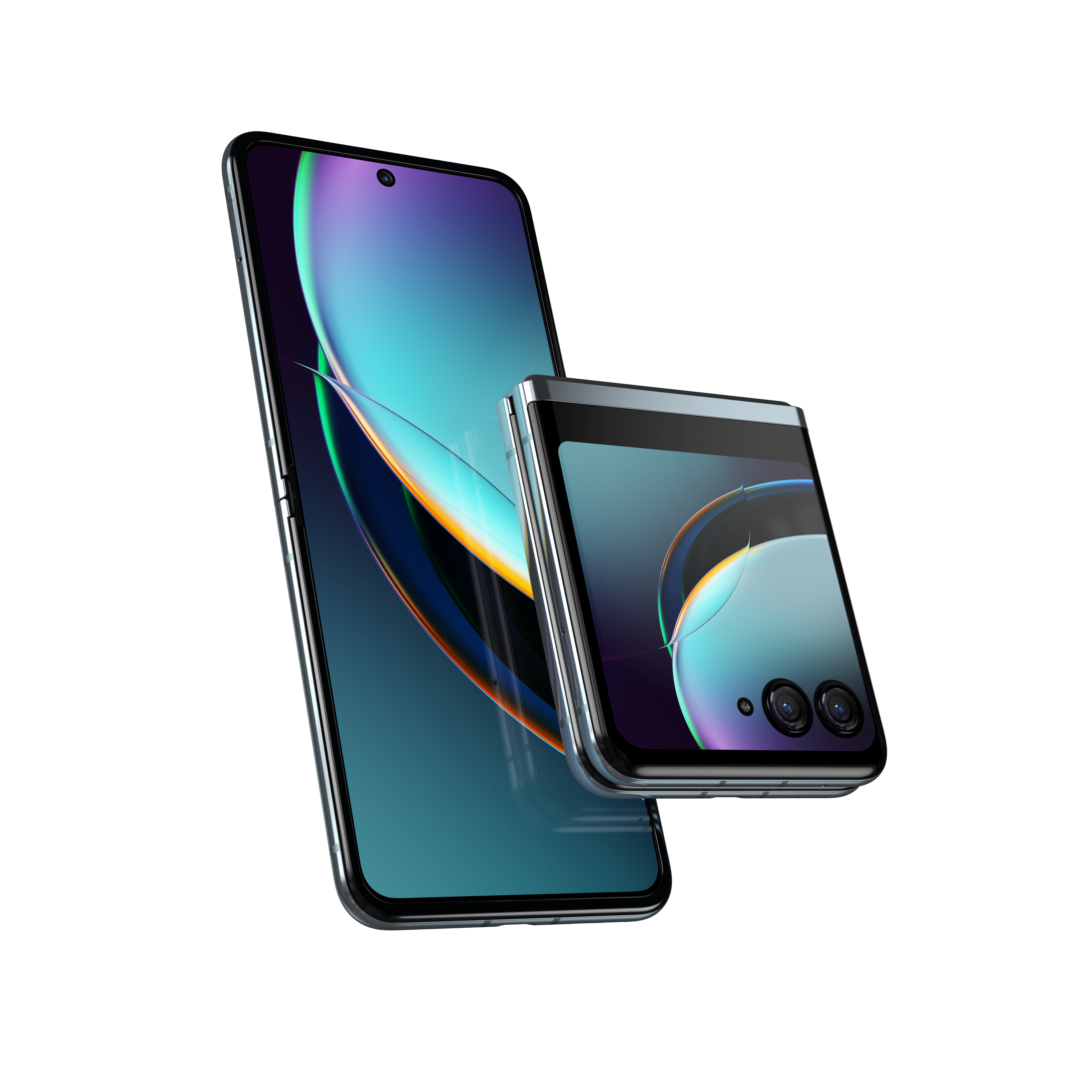
New foldable king
The new Razr+ is one of the most impressive foldable phones of 2023, thanks to its compact design and large cover screen. The phone has a powerful Snapdragon chip running the show and some useful software features to take advantage of both displays.
Pros
- More powerful Snapdragon 8+ Gen 1
- Useful 3.6-inch cover display
- Wide-aperture camera
- Faster 165Hz primary display
- Viva Magenta with vegan leather option
- Faster RAM and storage
- 3 OS upgrades, 4 years of updates
Cons
- Smaller battery capacity
- All glass on some color options
- Cameras are just okay
The Motorola Razr is back, and this time, the company didn't just launch one model. Alongside the flagship Razr+, Motorola also introduced the more standard Razr, which we lovingly refer to as the Razr-. And while this model has some lesser specs when compared to its flagship counterpart, it's still quite an impressive phone and one we think you might want to consider.
The Motorola Razr (Razr 40 in Europe) is not available in North America just yet, and a firm launch date has not been given for the phone. However, it will arrive in the United States and cost "marginally cheaper" than the Razr+ (Razr 40 Ultra in Europe), which starts at $999 in North America. Given that the MSRP for a new clamshell foldable usually sits around that price in this region, Motorola is looking to undercut some of the best foldable phones with the Razr, which could make it an ideal device for anyone looking for their first foldable.
But how does it compare to the Motorola Razr+, and is it worth waiting for? With any luck, our comparison will help you decide.
Motorola Razr vs. Razr Plus: Design & displays
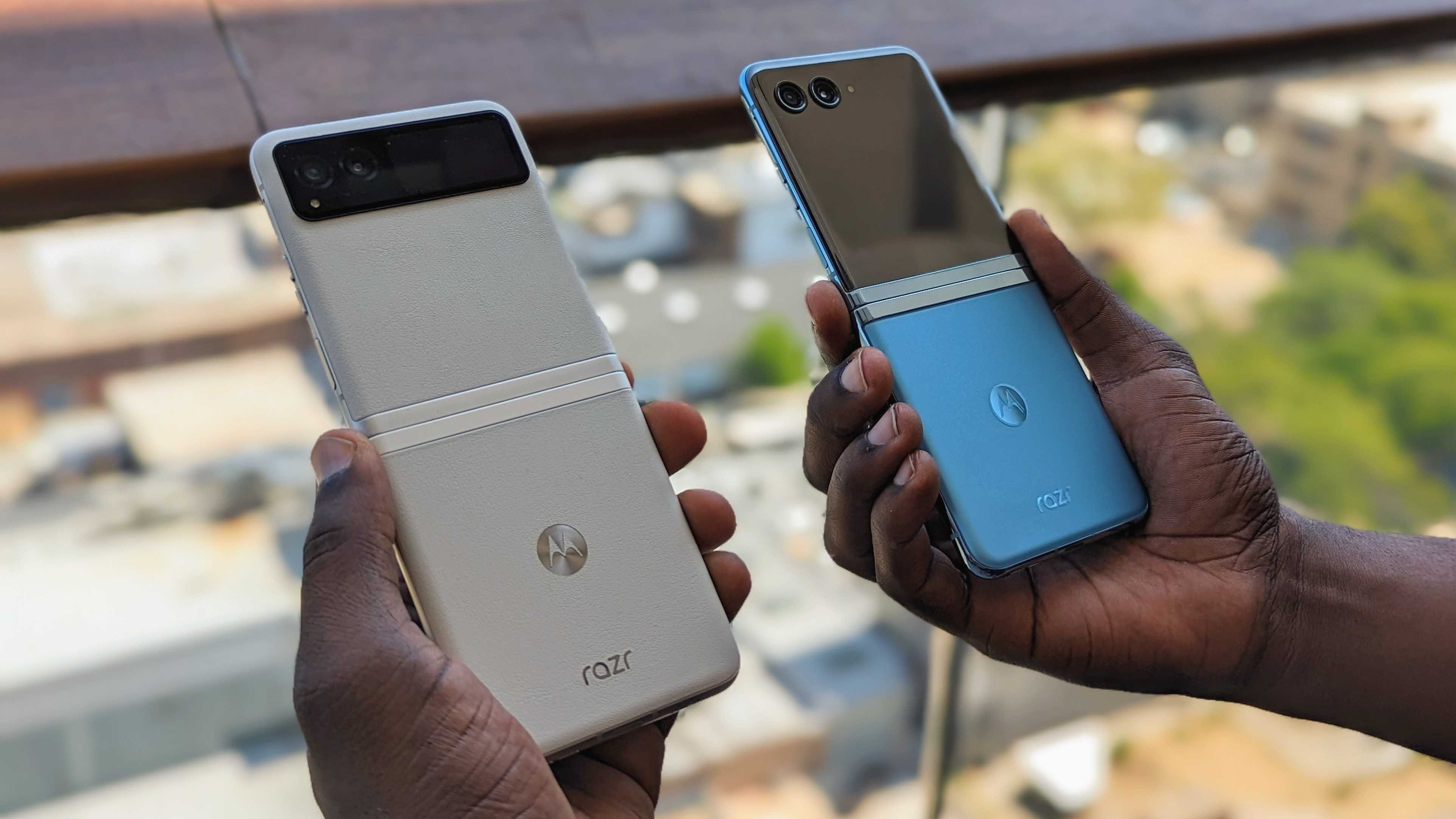
There are a lot of similarities between these two phones, but also a lot of differences. It's easy to tell the phones apart when closed since the Motorola Razr+ has a much larger 3.6-inch display taking up much of the cover panel. This results in a glossy finish on the cover, starkly differing from the vegan leather finish that encases much of the Razr's chassis. The cover panel is only interrupted by the smaller 1.5-inch display and the dual-camera setup.
All Razr colorways feature a vegan leather finish, but only the Viva Magenta hue on the Razr+. Other Razr+ colorways have a frosted glass back protected by Gorilla Glass Victus, which still feels quite good in the hand. However, glass is still prone to cracking or breaking, which can't be said for the faux leather.
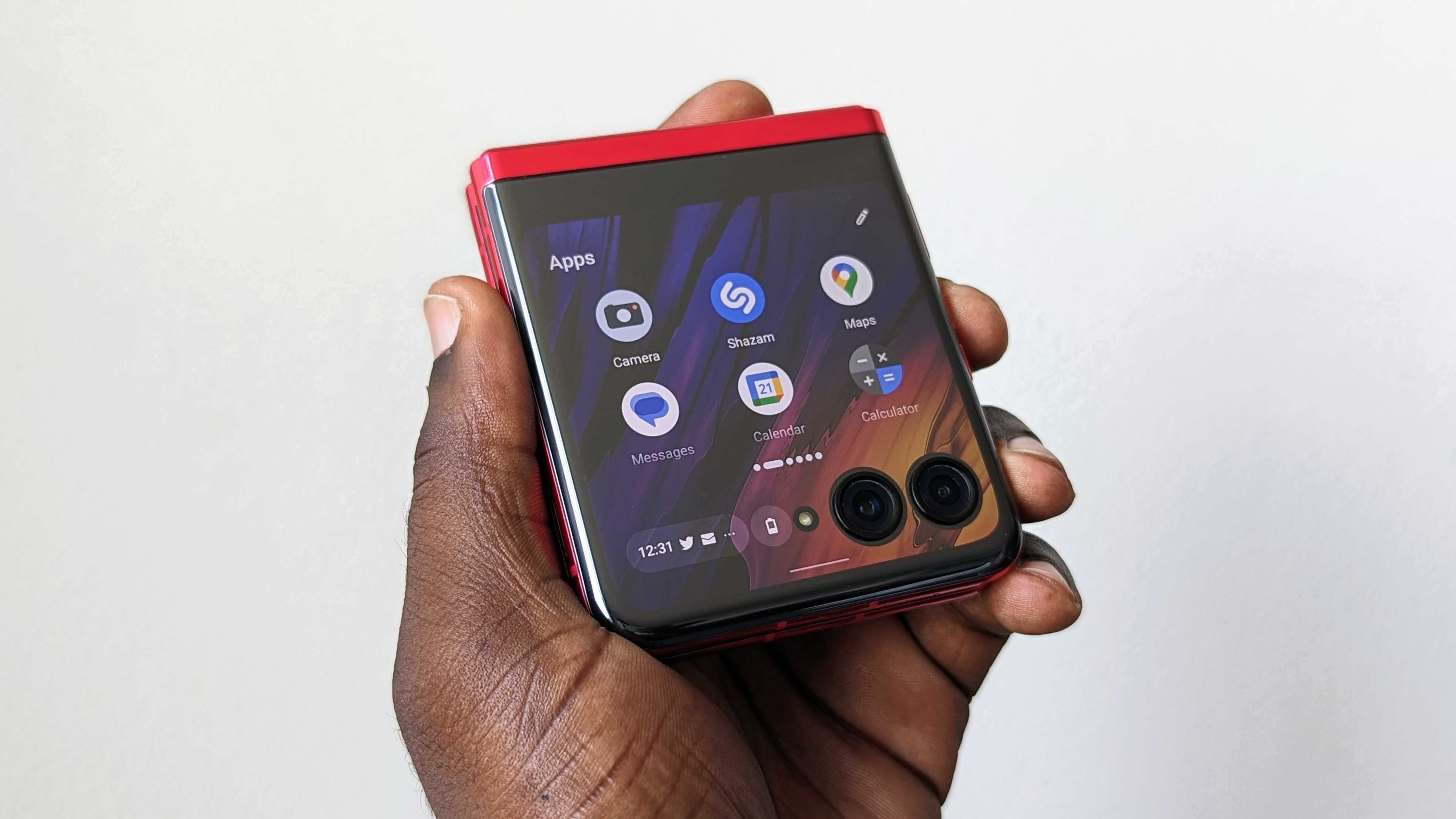
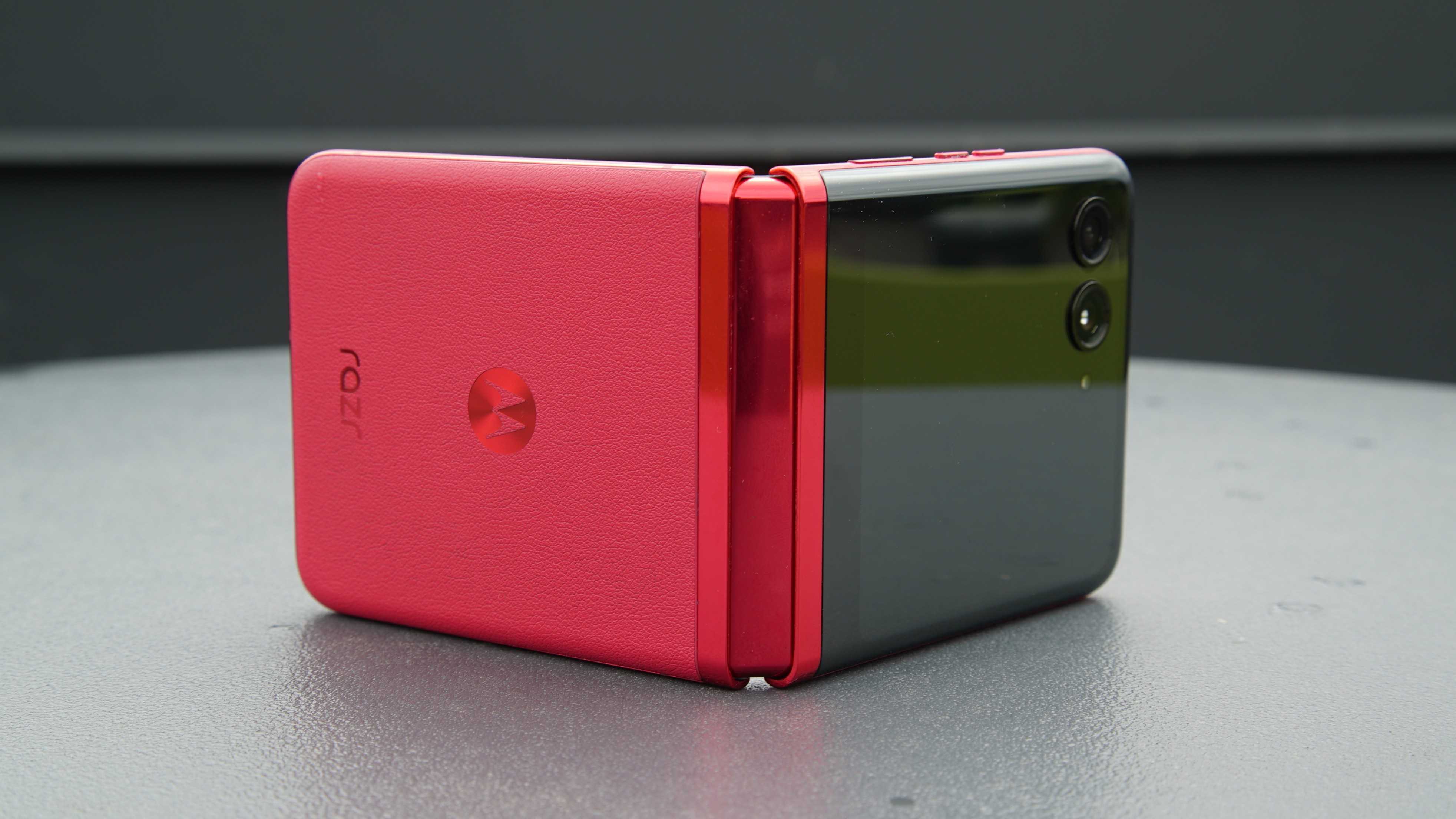
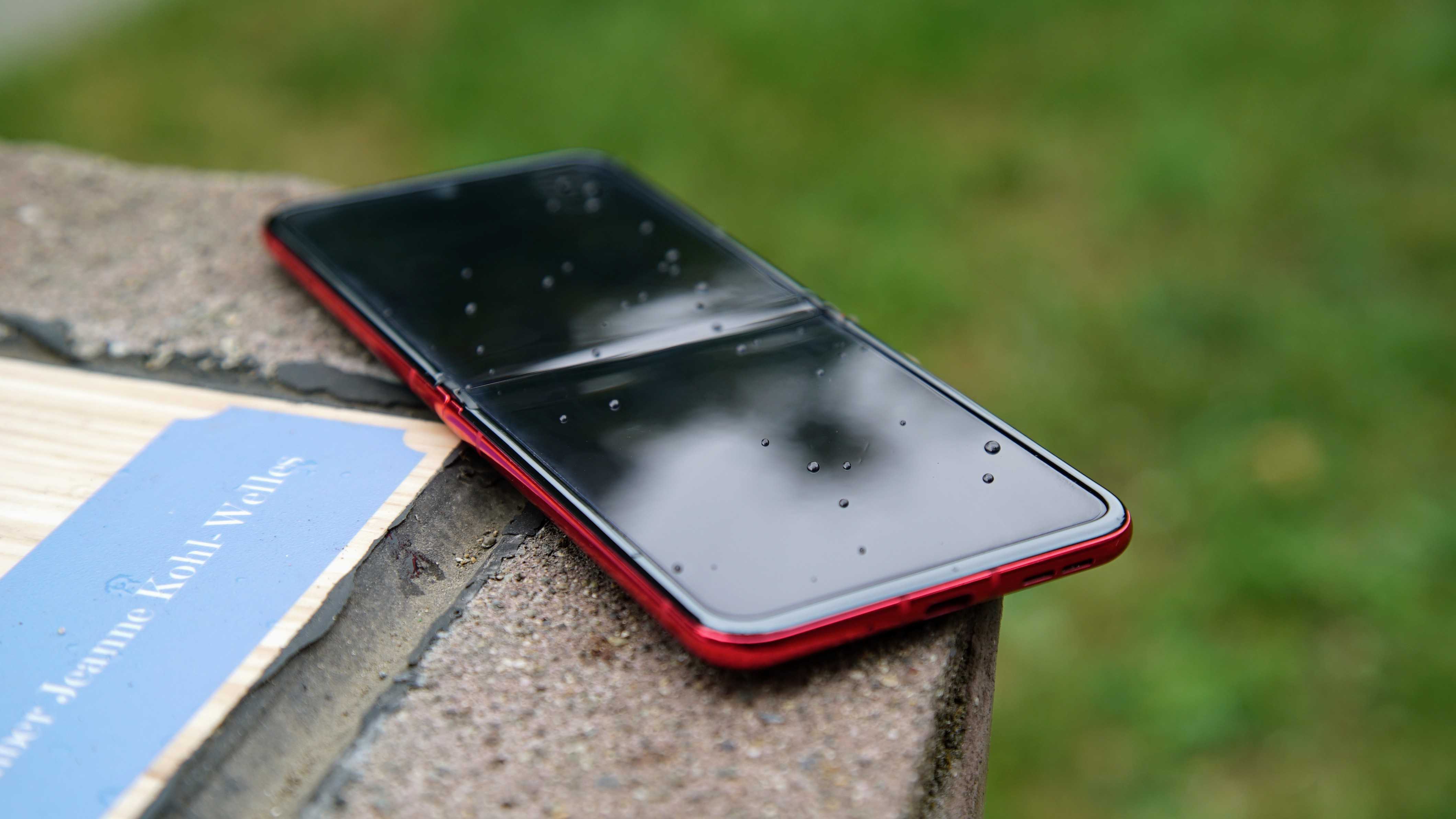
Both devices are roughly the same size when folded or unfolded, although the Razr+ is slightly thinner, which will be explained later.
The inner displays are both 6.9-inch OLED panels with a Full HD+ resolution. Both have quite fast refresh rates at 144Hz and 165Hz for the Razr and Razr+, respectively. They also have the same 1400 nits of peak brightness, which should be plenty, although my experience with the Razr+ display has been less than ideal in direct sunlight. The crease is present but fairly minimal on both, although extended use will reveal whether or not this persists.
Get the latest news from Android Central, your trusted companion in the world of Android
The outer display on the Razr+ is extremely useful for interacting with notifications, widgets, and full apps, which lets you limit how much you open the phone. It's the main selling point of the Razr+, and it works extremely well, even for apps that aren't optimized for the square aspect ratio.
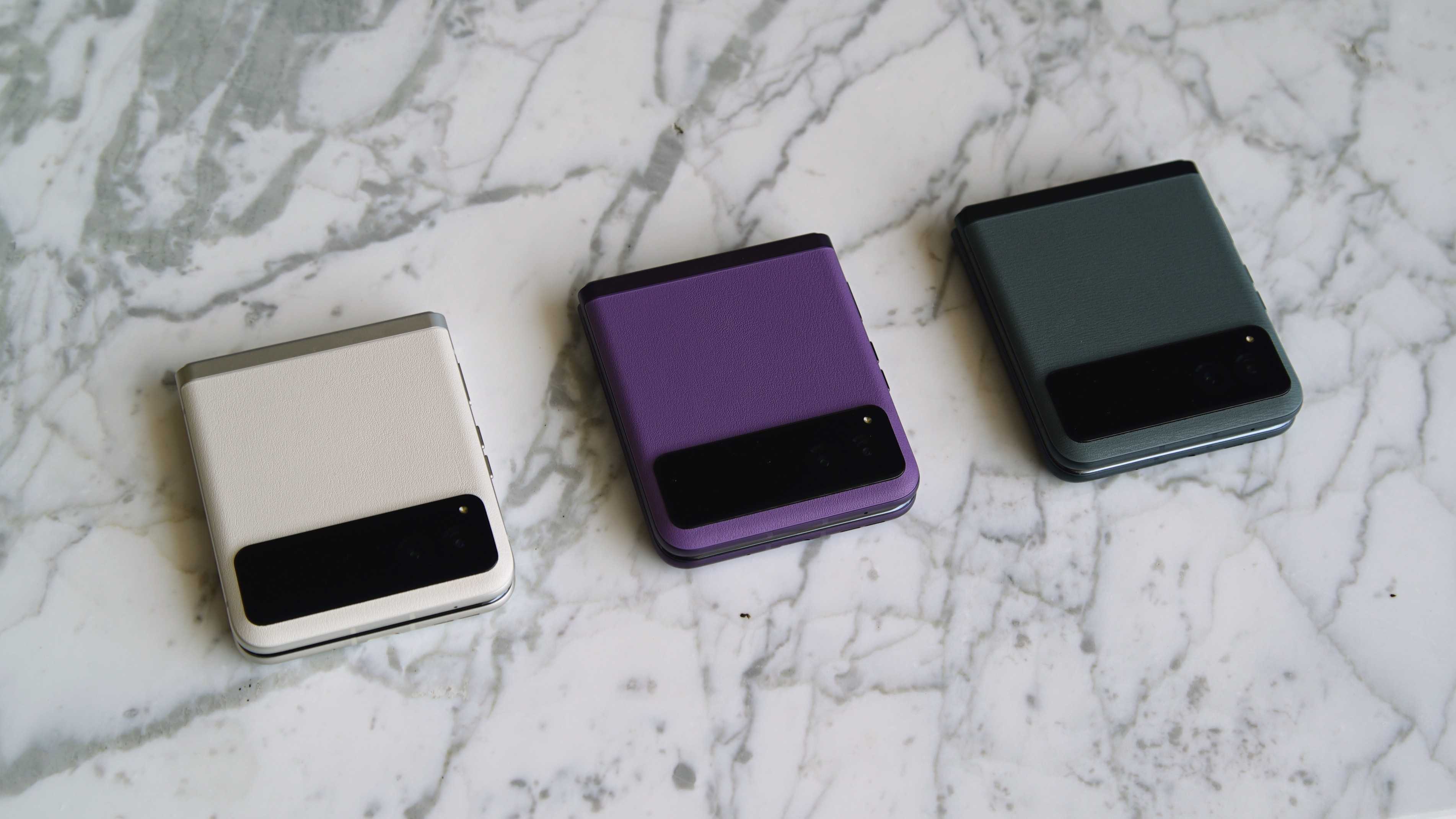
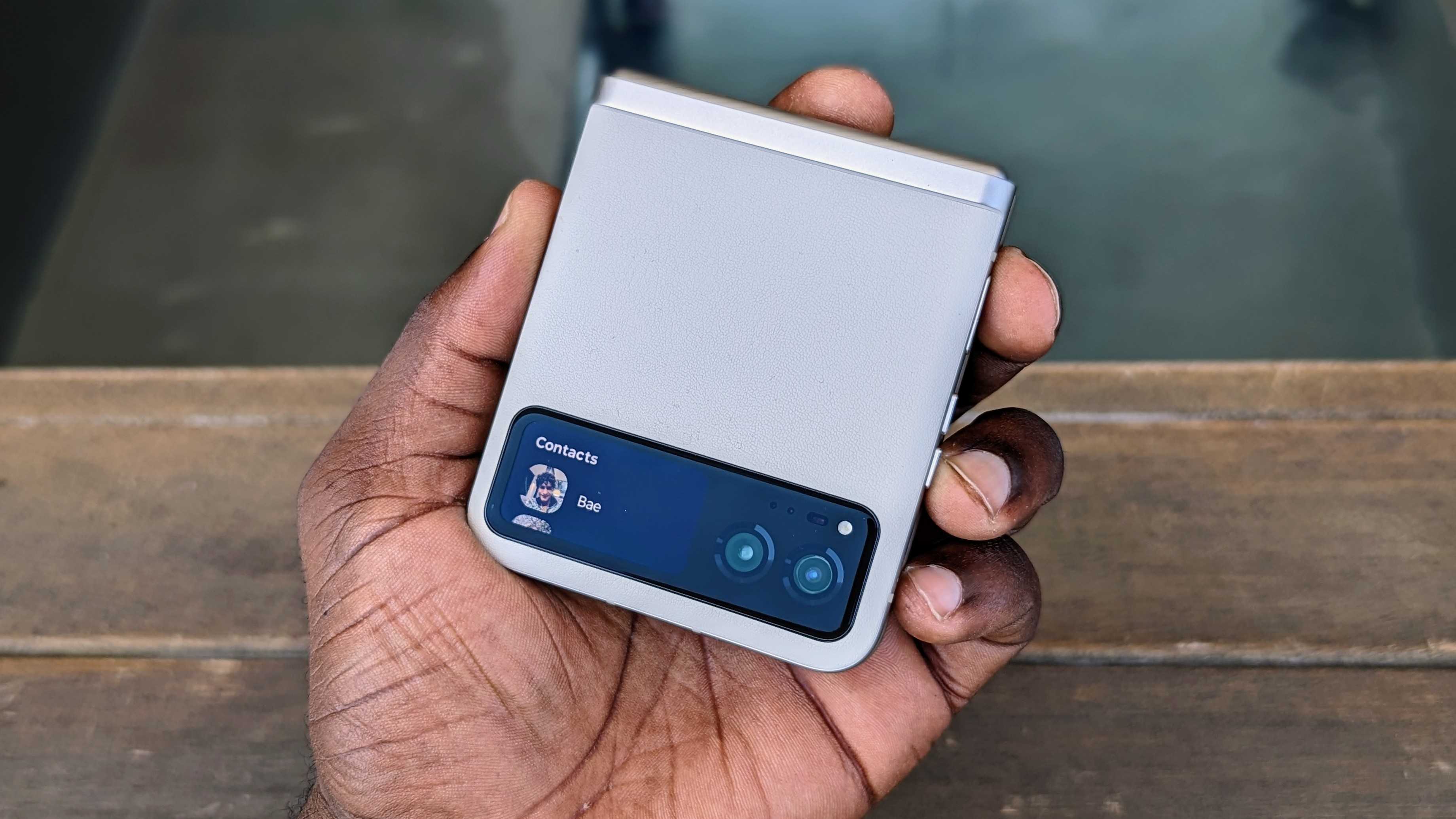
The smaller display on the Razr isn't nearly as useful, and users will be limited in how they interact with it. It'll show a series of widgets, notifications, and more, but you won't be able to open apps on it or do anything too fancy. That said, I have not used the phone extensively, so I'll have to test out just how useful it is once I get my hands on a unit.
Both Razr models have an IP52 rating for water and dust resistance. While they don't have the most robust liquid protection, the dust resistance is just as useful. There is a side-mounted fingerprint sensor on the side, which works very well in my experience with the Razr+.
Motorola Razr vs. Razr Plus: Hardware & specs
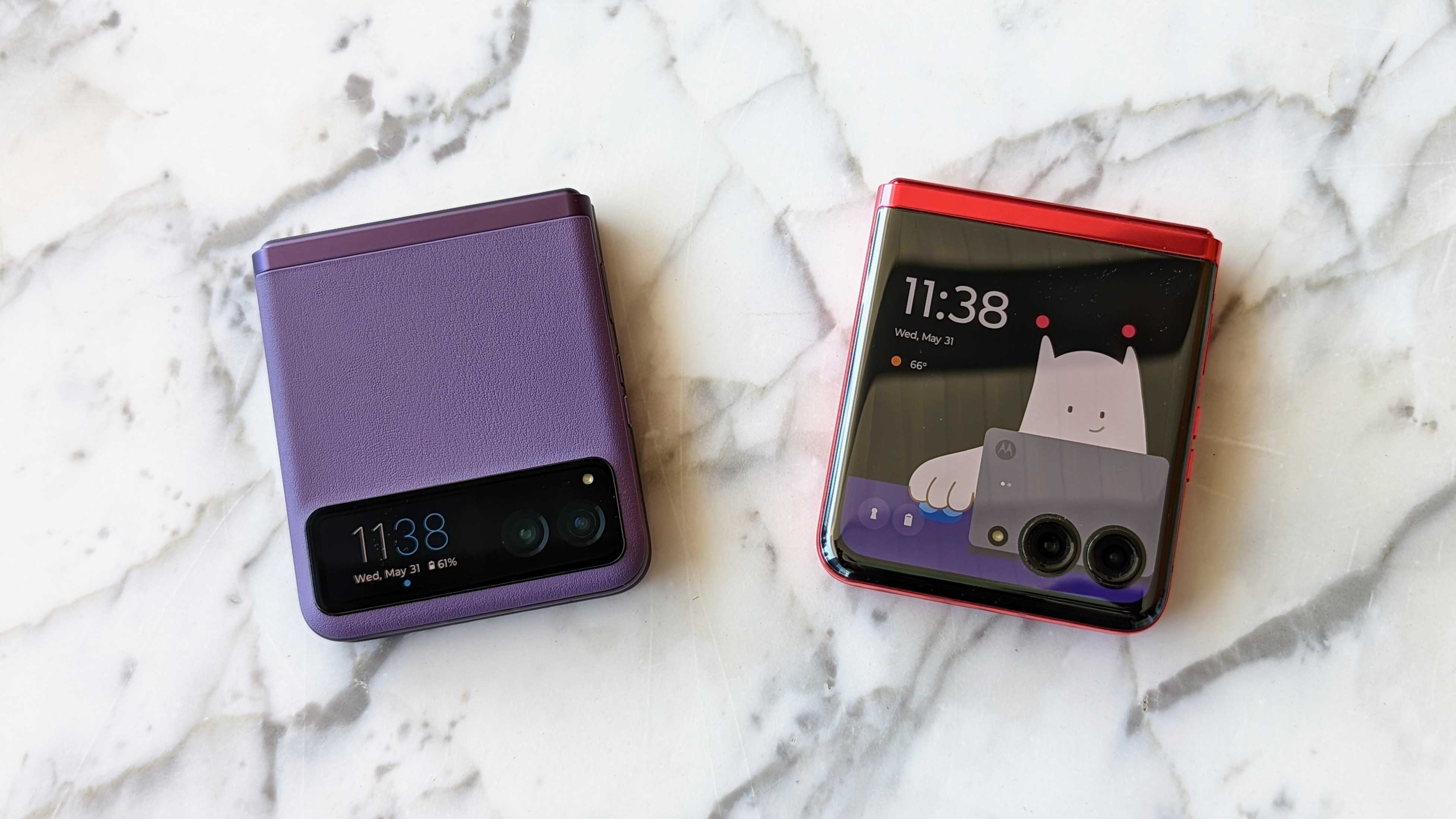
As the more flagship device, the Razr+ is powered by the Snapdragon 8+ Gen 1, a chip that powers many new flagship devices and foldable phones launching this year. It's coupled with 8GB of LPDDR5 RAM, and it performs extremely well, handling apps and games with virtually zero lag or fuss.
The Razr may not have a "flagship" chipset, but the Snapdragon 7 Gen 1 is likely no slouch. In my experience with the Snapdragon 6 Gen 1 on the Moto G Stylus 5G (2023), I found the chipset performed extremely well and made the midrange phone feel almost like a flagship. I expect the 7 Gen 1 will be even better, even with 8GB of LPDDR4X RAM.
| Category | Motorola Razr+/40 Ultra | Motorola Razr/40 |
|---|---|---|
| OS | Android 13 | Android 13 |
| Display (internal) | 6.9-inch, pOLED, FHD+ (2640 x 1080), 165Hz LTPO, 1400 nits, 22:9 | 6.9-inch, pOLED, FHD+ (2640 x 1080), 144Hz LTPO, 1400 nits, 22:9 |
| Display (external) | 3.6-inch, pOLED, 1066 x 1056, 144Hz, 1100 nits, 1:1 | 1.5-inch, OLED, 194 x 368, 60Hz, 1000 nits, 2:1 |
| Chipset | Snapdragon 8+ Gen 1 | Snapdragon 7 Gen 1 |
| RAM | 8GB LPDDR5 | 8GB LPDDR4X |
| Storage | 256GB, USF 3.1 | 128GB, USF 2.2 |
| Audio | 3 mics, stereo speakers, Dolby Atmos | 3 mics, stereo speakers, Dolby Atmos |
| Connectivity | 5G, Wi-Fi 6E, Bluetooth 5.3, NFC | 5G, Wi-Fi 6E, Bluetooth 5.3, NFC |
| Security | Fingerprint sensor | Fingerprint sensor |
| Protection | IP52, Gorilla Glass Victus | IP52, Gorilla Glass Victus |
| Battery | 3800mAh, 30W wired charging, 5W wireless | 4200mAh, 30W wired charging, 5W wireless |
| Dimensions (open) | 73.95 x 170.83 x 6.99mm | 73.95 x 170.82 x 7.35mm |
| Dimensions (closed) | 73.95 x 88.42 x 15.1mm | 73.95 x 88.24 x 15.8mm |
| Weight | 188.5g, 184.5g (Viva Magenta) | 188.6g |
| Colors | Glacier Blue, Infinity Black, Viva Magenta | Sage Green, Vanilla Cream, Summer Lilac |
The Razr+ has the upper hand when it comes to storage, with double the amount found in the Razr. The built-in 128GB USF 2.2 storage may be enough for some, but it's slightly slower, and the lack of expandable storage (on both) may be a detracting factor and may cause some to lean toward the Razr+.
Audio and connectivity are the same between the two devices, which is good because the Razr+ sounds phenomenal with its Dolby Atmos-tuned stereo speakers. Both devices also run Android 13 with My UX and have the same promise of three OS upgrades and four years of security updates. Motorola may not have the best track record, but that's still nice to know when considering wither device.
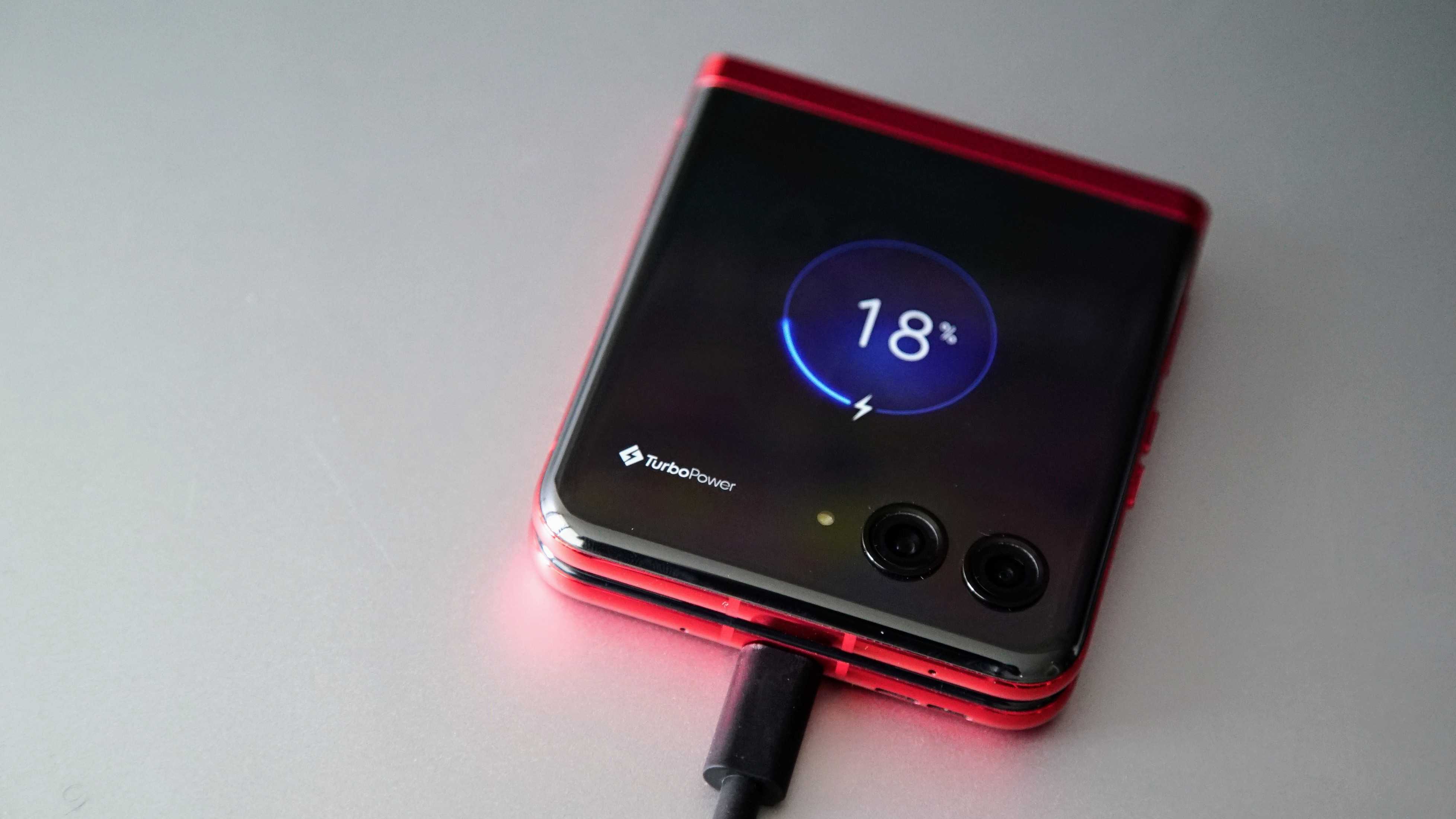
Where the Razr has the advantage over the Razr+ is in battery capacity. The Razr+ has a 3800mAh battery, which Motorola says should last all day, but that has not been the case in my use. I usually have to charge it in the middle of the day, but it also depends on how you use it, particularly how often you take advantage of the cover display.
The Razr will have a larger 4200mAh battery, which could make a big difference. Sure, you won't have a large cover screen to take advantage of, so we'll have to see how good the battery life is once we get a unit in for testing. It's also nice that both phones come with 30W charging, which isn't the fastest we've seen, but it still gets the job done.
Motorola Razr vs. Razr Plus: Cameras
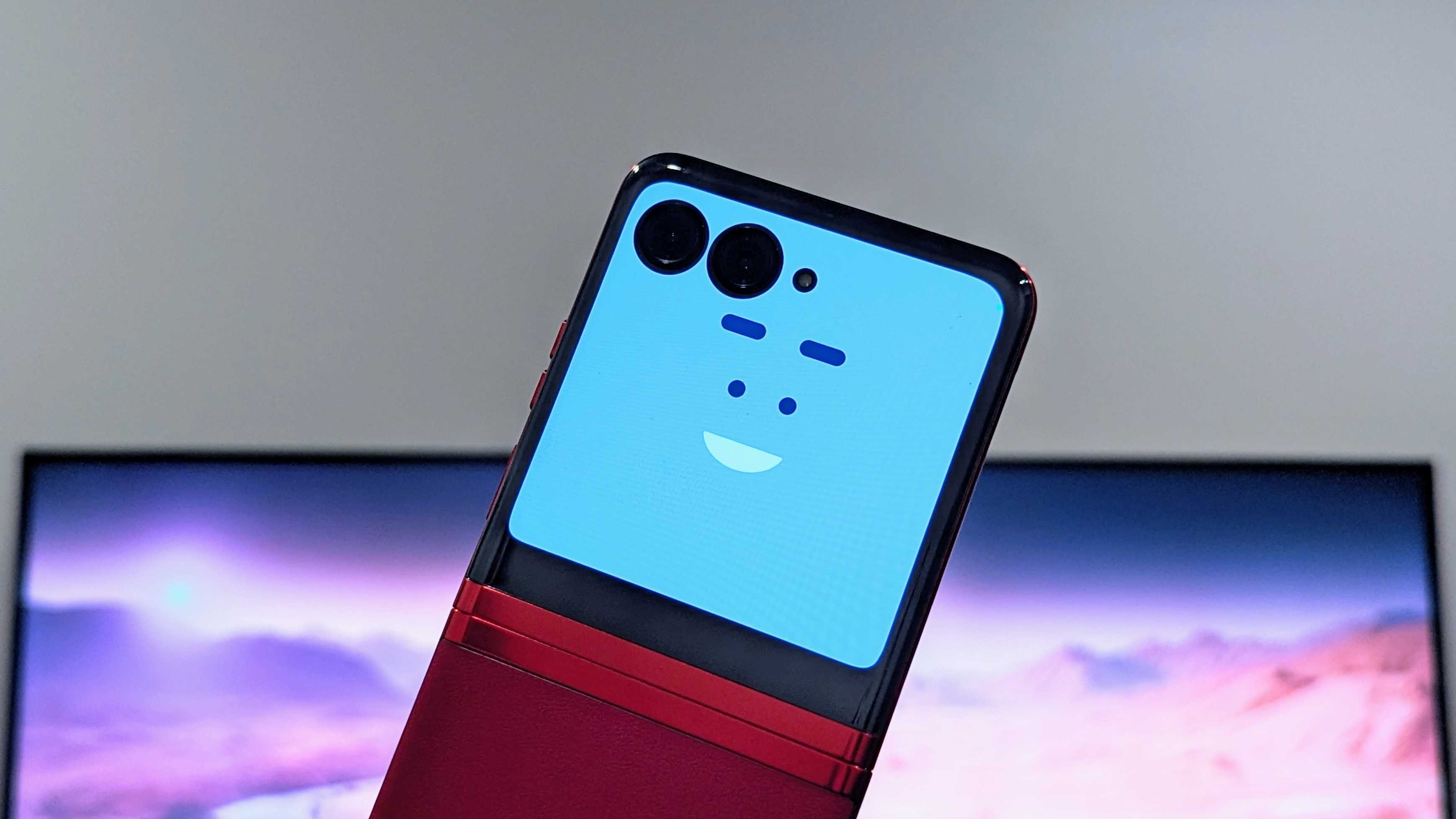
Cameras aren't a strong point for clamshell foldables, and that's true with the Razr+. The phone takes respectable photos with plenty of light, but they can appear a bit washed out and lacking in depth and vibrance. Photos aren't bad; they're just not particularly good, either. They're just meh.
The phone also does a weird thing with selfies, where they sometimes have a sepia-like tint that appears in certain lighting conditions. It may take some maneuvering to get rid of the tint, and you can always remove it later, but it's still annoying.
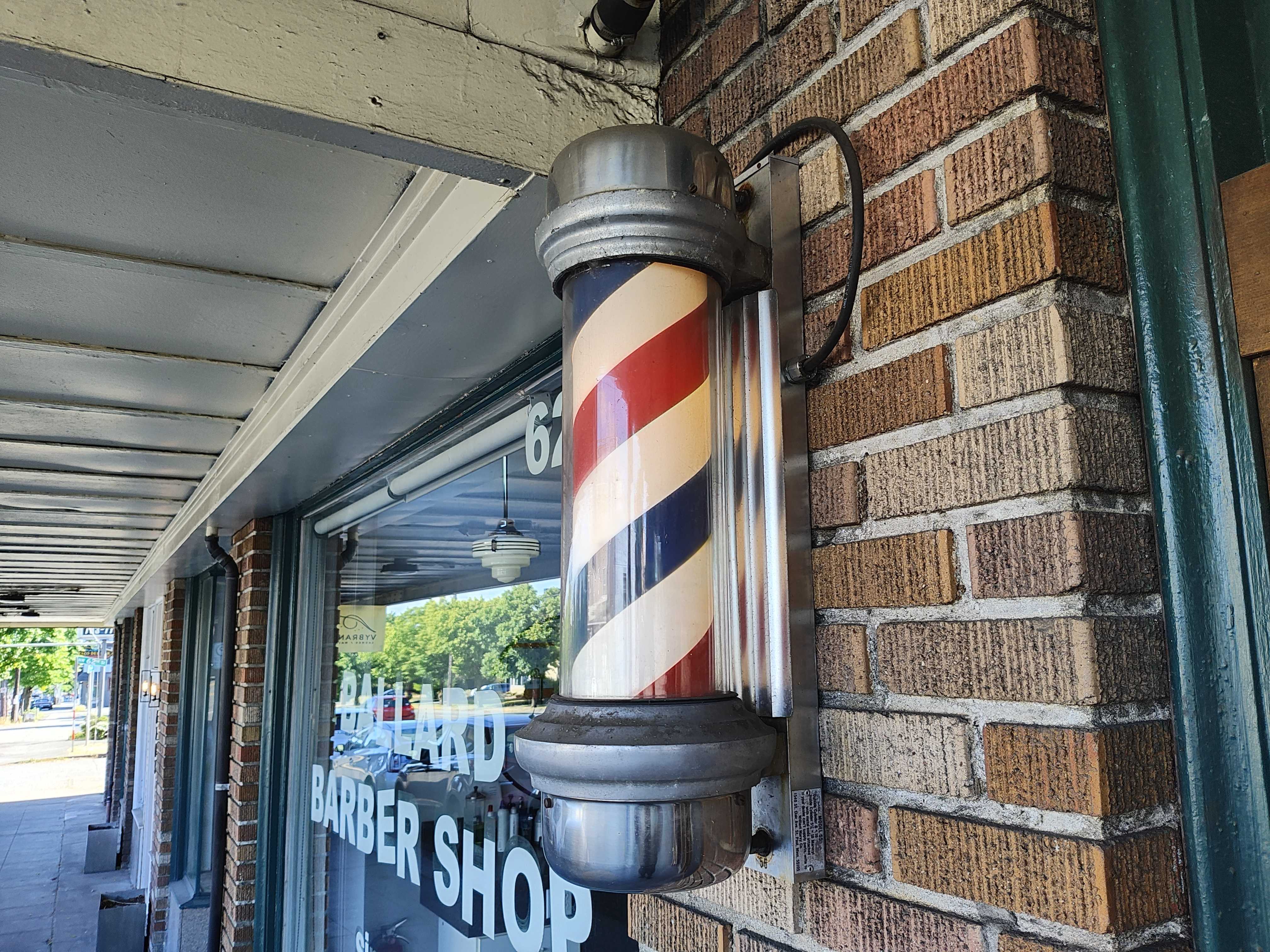


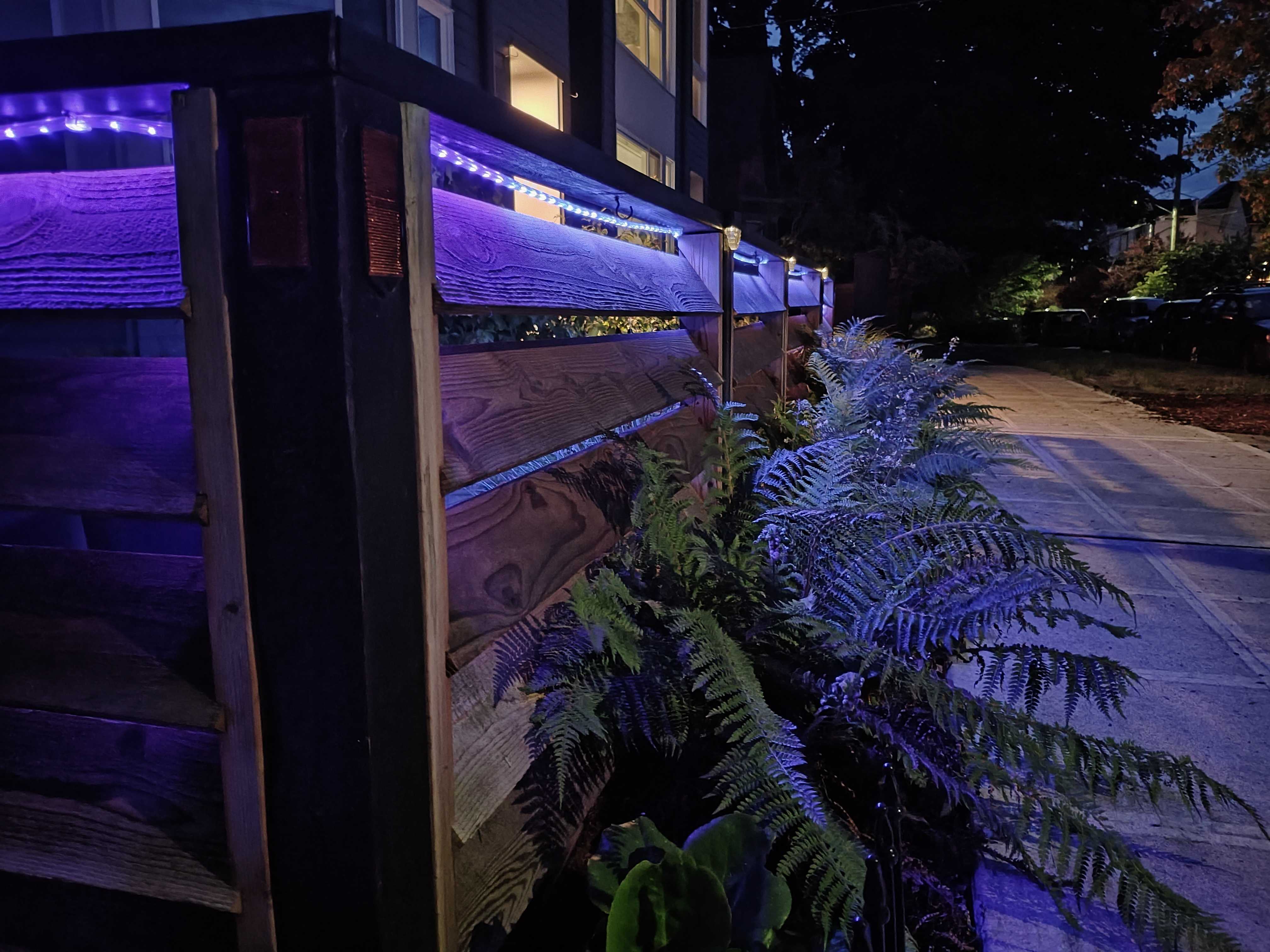



Low-light and nighttime images are pretty decent, thanks to the phone's rather wide aperture. The phone also takes 4K60 video on the primary and selfie cameras, although video can be hit or miss. And thanks to the large cover display, users can use the screen as a way for the subject to preview the image so they can adjust themselves.
As for the Razr, Motorola is outfitting it with a 64MP primary sensor, giving it more pixels than the 12MP unit on the Razr+. This may sound much better, especially with pixel binning, but the wider aperture may still give the Razr+ the upper hand with low light.
| Cameras | Motorola Razr+/40 Ultra | Motorola Razr/40 |
|---|---|---|
| Rear Camera 1 | 12MP wide, f/1.5, 1.4μm, OIS | 64MP wide, f/1.7, 0.7μm (1.4μm Quad Pixel), OIS |
| Rear Camera 1 | 13MP ultrawide + macro, f/2.2, 1.12μm, 108° | 13MP ultrawide + macro, f/2.2, 1.12μm, 108° |
| Selfie Camera | 32MP, f/2.4, 0.7μm | 8MP, f/2.4, 1.4um, Quad Pixel | 32MP, f/2.4, 0.7μm | 8MP, f/2.4, 1.4um, Quad Pixel |
We have yet to really test the Razr's cameras, but once we get a review unit, we'll be sure to compare the two phones to see how the more affordable model fares against its flagship counterpart.
Motorola Razr vs. Razr Plus: Which should you buy?
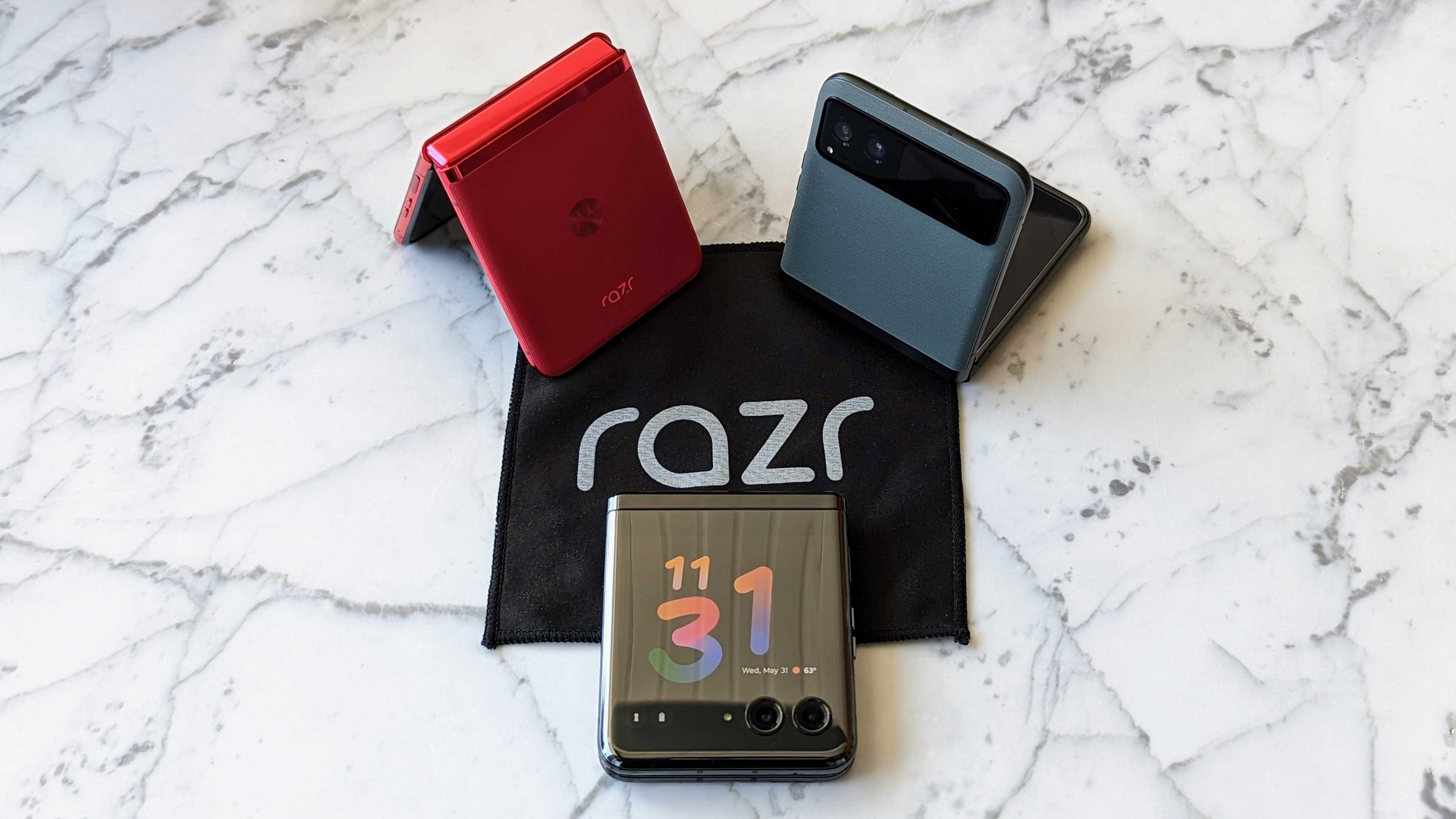
The decision between the Razr and Razr+ comes down to what you prioritize. With the Razr+, you'll pay more, but you'll have a more powerful phone with a large cover display for interacting with apps and useful camera features. The Razr is still plenty powerful, but it'll also be more affordable and potentially have better battery life.
If you're someone who is comfortable with foldable or prefers a more flagship experience, The Razr+ is probably the phone for you. However, if you're someone who has been on the fence about foldable and maybe want to get your hands on one without spending an arm and a leg, you might want to wait around for the Razr.
Keep in mind the Razr+ is available now, while the Razr's availability in North America doesn't have a firm date, only that we'll be getting it in the coming months. And even though it'll be marginally cheaper than the flagship model (we're seeing £799 and €899 in Europe), you can still find some great deals on the Razr+ that are worth checking out. Still, the Razr should offer plenty of value for anyone looking for a foldable, especially considering it'll likely cost less than many non-folding phones. And to me, that's a great way to introduce users to the form factor.

The Razr, upgraded
Motorola's new Razr+ is one of our favorite new smartphones and one of the best foldables available now. Aside from its great design and large cover screen, the phone has some powerful specs that rival or surpass the competition, making it foldable phone worth considering.

Derrek is the managing editor of Android Central, helping to guide the site's editorial content and direction to reach and resonate with readers, old and new, who are just as passionate about tech as we are. He's been obsessed with mobile technology since he was 12, when he discovered the Nokia N90, and his love of flip phones and new form factors continues to this day. As a fitness enthusiast, he has always been curious about the intersection of tech and fitness. When he's not working, he's probably working out.
